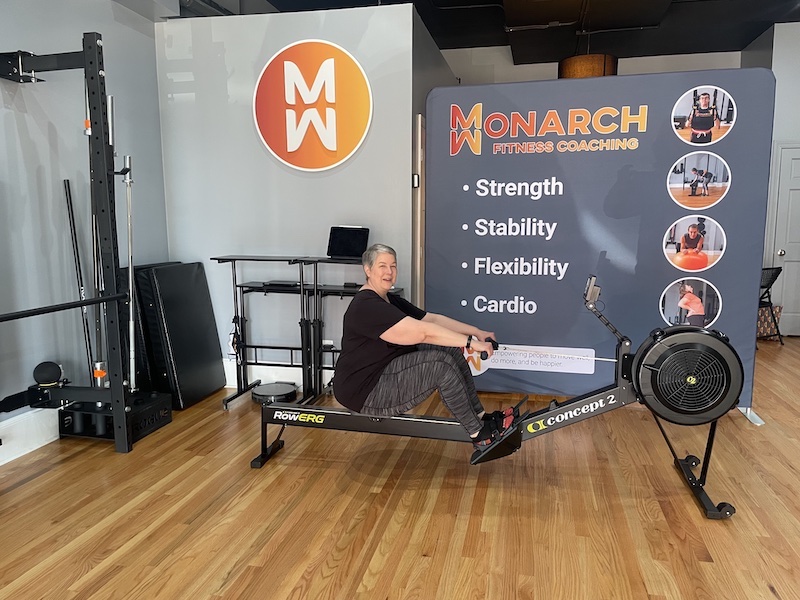Get Warmed Up
Warming up prepares you both physically and mentally for increased intensity. Properly warming up ensures your muscles, joints, and signals from the brain to the muscles are working correctly. Warming up reduces the potential for injury and improves training efficiency.
When should I warm up?
A warm up should be done before all exercises that have a greater intensity then a warm up effort. Athletes should warm up for all types of training including cardio training, strength training, and stretching.
Why Should I Warm Up?
Warming up prepares your body for an increased work load.
Warming up:
- Mentally prepares an athlete for the main set
- Increases blood flow providing oxygen and nutrients
- Improves joint mobility
- Increases range of motion
- Gradually increases body temperature
- Gradually raises the heart rate
- Improves the muscles’ ability to stabilize joints and organs
- Improves reaction time
Additionally the warm up alerts the athlete to any potential problems. Some examples of potential problems include tight muscles, knots in muscles, sore muscles, general fatigue, and illness.
What should I do to warm up?
Consider starting your warm up with myofascial release brought about by foam rolling, using a stick, a ball or self massage. Myofascial release helps loosen tight muscles and relieves soreness.
Warm ups include repetitive motions that are less intense and less complex but similar to the motions performed during the main set. For example if an athlete is going to execute a burpee during the main set, the warm up might include pushups, squats and some low intensity plyometrics.
Cardio warm up is also beneficial. The cardio warm up should engage and utilize the muscles and joints in a similar manner to the way the muscles and joints will be utilized during the main set. For example if you are going to run, the warm up would include walking and jogging. The intensity of the cardio warm up varies depending on what the intensity of the main set will be.
Typically, the higher the cardio intensity the longer the warm up. The warm up is also typically longer if strength training is more intense or muscles are required to be more elongated during stretching.
How long should my warm up last?
Warm ups are typically 5-10 minutes for lower intensity less complex main sets and 20-30 minutes for higher intensity more complex main sets. The less active you have been prior to the workout and the more sore and tight you are, the longer the warm up will take.
How do I know if I am warmed up?
An athlete is warmed up when the following are at a level that will support the main set effort:
- heart rate, body temperature and blow flow
- joint mobility and range of motion
- muscles are responding to signals from the brain and holding joints and organs in place
- reaction time has improved
What should I do if it is time to start my main set and I am not warmed up?
An athlete should not start a main set when not properly warmed up. There are several options: 1) reduce the workout load of the main set, 2) continue warming up, 3) stop the workout.


Warming up prepares you both physically and mentally for increased intensity. Properly warming up ensures your muscles, joints, and signals from the brain to the muscles are working correctly. Warming up reduces the potential for injury and improves training efficiency.
When should I warm up?
A warm up should be done before all exercises that have a greater intensity then a warm up effort. Athletes should warm up for all types of training including cardio training,




Leave a Reply
Want to join the discussion?Feel free to contribute!